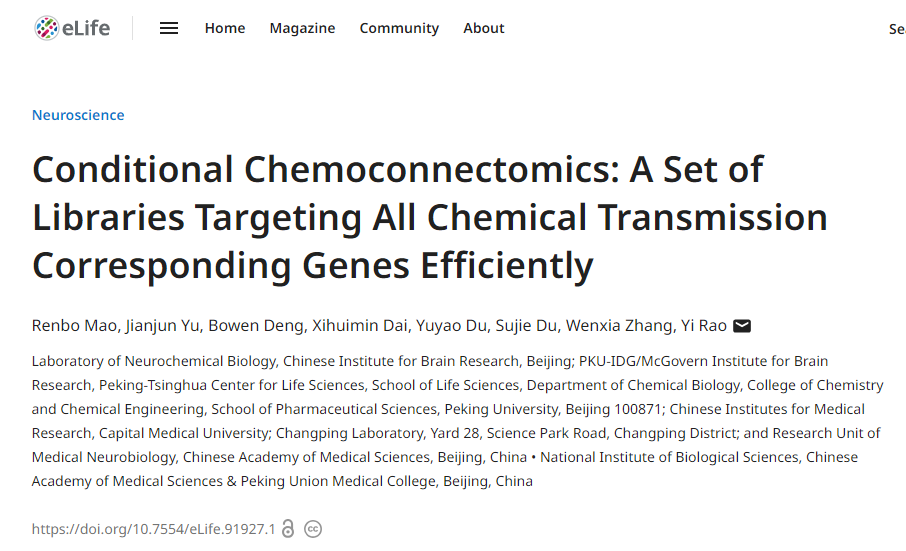eLife | Prof. Yi Rao: Conditional Chemoconnectomics: A Set of Libraries Targeting All Chemical Transmission Corresponding Genes Efficiently

Abstract
Dissection of neural circuitry underlying behaviors is a central theme in neurobiology. Chemical transmission is the predominant model for signaling between neurons. Here we have created lines target all chemical transmission corresponding genes in Drosophila after modifying GFP RNA interference, Flp-out and CRISPR/Cas9 technologies. After thorough validation, all three strategies are demonstrated to be highly effective with the best using chromatin-peptide fused Cas9 variants and scaffold optimized sgRNAs. As a proof of principle, we conduct a comprehensive intersection analysis of chemoconnectome (CCT) genes expression profiles in the clock neurons using chemoconnectomics driver lines, leading to the finding of 45 CCT genes presented in clock neurons. Mutating these genes specifically in clock neurons revealed that loss of the neuropeptide CNMa in two posterior dorsal clock neurons (DN1p) or its receptor (CNMaR) caused advanced morning activity, opposite to the mutants of neuropeptide PDF or its receptor (PDFR). These results demonstrate the effectiveness of conditional chemoconnectomics libraries and indicate an antagonistic relationship between CNMa-CNMaR and PDF-PDFR signaling in regulating morning anticipation.
Original Link: https://doi.org/10.7554/eLife.91927.1